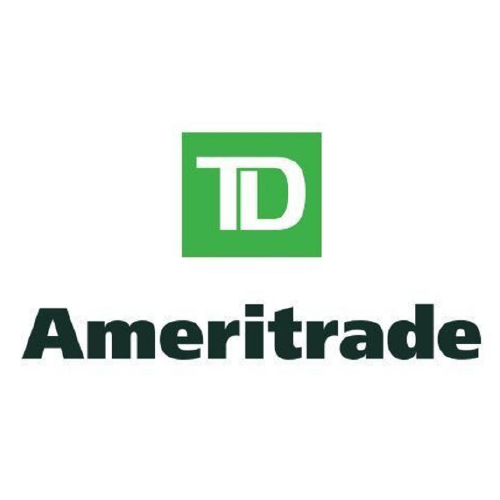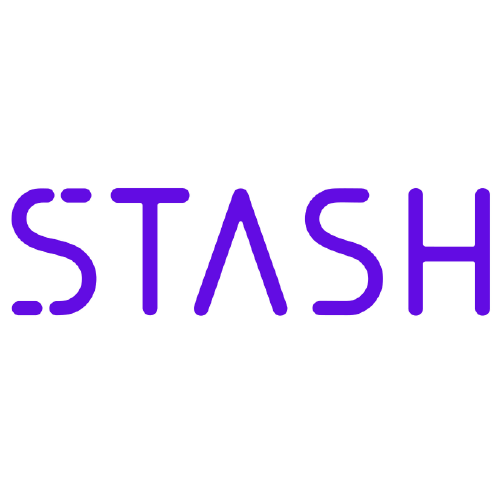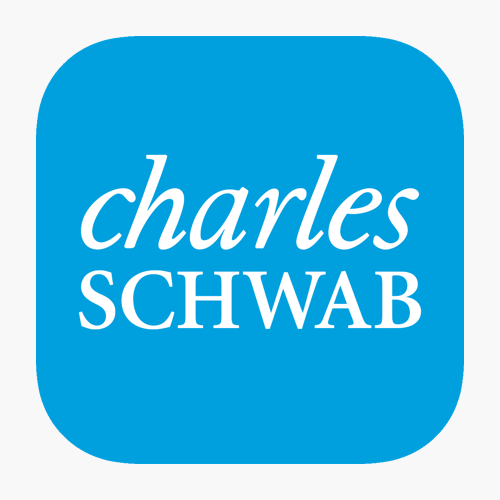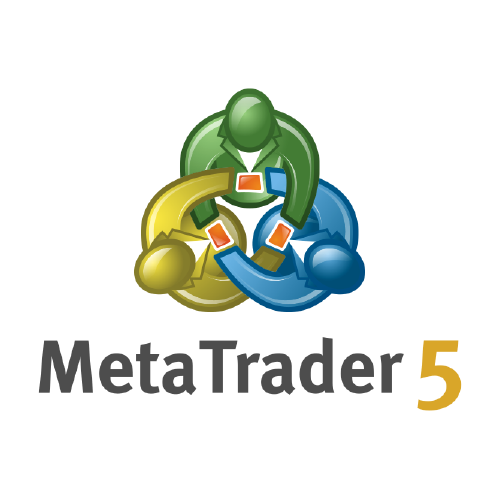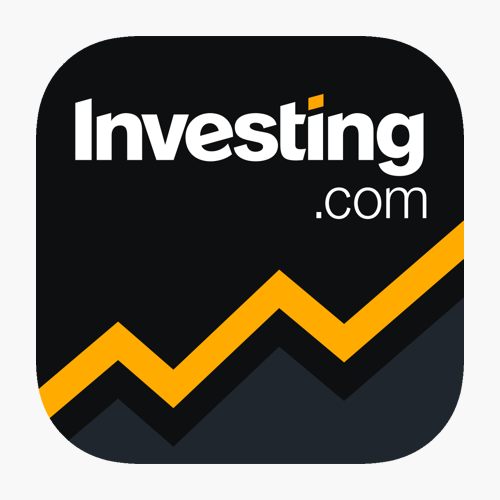
Bond Brokers
- What Are Bonds?
- What Are the Different Types of Bonds?
- Government Bonds
- Corporate Bonds
- Junk Bonds
- Savings Bonds
- Who Regulates Bond Brokers?
- Why Use a Bond Broker?
- Top 10 UK Bond Brokers
- 1. eToro
- 2. City Index
- 3. CMC Markets
- 4. IG
- 5. Saxo
- 6. Degiro
- 7. Hargreaves Lansdown
- 8. Interactive Investor
- 9. Interactive Brokers
- 10. Fidelity International
- Final Thoughts
What Are Bonds?
A bond is a loan offered by a government, business or other organizations where investors can make a fixed investment and get a predictable return over a specified period.
The bond is for a specific duration and the investors earn an income from interest (known as the coupon).
Bonds are a popular method of investing for income rather than capital growth for stability and known income in a portfolio, allowing investors to match future returns to future liabilities. Coupons can be variable or fixed rate, so income comes throughout the period of the bond – which could potentially be 30–50 years.
Bonds have a nominal rate of £100 (UK) or $1,000 (US), but these prices can fluctuate when it first comes to the market and throughout the term, although those with short durations are less likely to change over time.
Prices fluctuate because of supply and demand, the credit rating of the company issuing the bond, the coupon rate and how close it is to the end of the term.
The nominal rate is described as the ‘par value’ and is the face value of the bond.
Although bonds are seen as less risky investments than equities because they offer predictable income and returns, negative interest rates can influence the return, causing investors to take on more risk.
What Are the Different Types of Bonds?
There are several types of bonds available, each with different risk profiles and possible returns.
Bonds are rated based on risk and credit ratings by institutions like Moody’s and Standard and Poor’s to ascertain the financial stability of the entity – and therefore determine the likelihood of bonds being repaid and the interest rates being met.
Bonds are rated on an alphabetic scale, with the top rating being AAA and riskier bonds at a C or below.
Government Bonds
Often referred to as Gilts in the UK, government bonds are issued by government agencies and national treasuries.
They are considered low risk as it is more likely that the coupon and the return are likely to be paid and the conditions of the bond will be met.
A supranational bond has a similar risk profile but tends to be issued from banks.
Corporate Bonds
In general, corporate bonds are a relatively safe fixed income investment. Investment-grade corporate bonds are the most common, issued by companies with a high credit standing.
Corporate bonds tend to offer a higher coupon threshold than government bonds so offer more income.
Junk Bonds
Junk bonds are essentially corporate bonds from companies with a lower credit rating. They are considered much higher risk but offer a greater return if the risk pays off.
Junk bonds are often offered by companies that are going through some kind of financial struggle and need an injection of cash.
Savings Bonds
Savings bonds are offered by banks and building societies and are popular with retail investors, especially those with little experience of investing.
With low prices for investing and relatively low risk, savings bonds can fluctuate quickly but the maturity terms are often lengthy.
The Best Trading Platforms
Let’s take a look at the best trading to earn more.
1. Liteforex
Best for: Learning from others
Liteforex is one of the most popular online reliable brokers over the world. Over the past 15 years, it has developed a strong reputation for beginners and experienced investors alike, has a minimum $100 deposit.
The Liteforex app aims to use easy for every clients. It is available on Google Play and the App Store and allows you to move seamlessly between devices.
It’s innovative features include:
- Pre-programmed one-click trading
- Copy Trader – Copy the trades of others in real-time
- Its own social networking platform
- Pre provided investment strategies which they call Copy Portfolios
The app boasts the ability to allow you to place online trades even if the trading platform is down.
The information is being presented without consideration of the investment objectives, risk tolerance, or financial circumstances of any specific investor and might not be suitable for all investors.
2. FXTM
The FXTM Platform itself is intuitive and easy to use, suitable for those just getting into trading and those more experienced alike.
It is designed to offer a full replication of an institutional trading environment including depth of market.
With advanced risk management and order functionality, this is a detailed platform for trading stocks.
The FXTM app offers a premium range of order types, with advanced technical analysis tools.
You can set up push and email notifications for the important things that you want to know in relation to your stock trading needs – such as price alerts and trade statistics.
Within the app, you can:
- Complete a range of order types
- Work with all your accounts in one app
- Understand detailed trade analysis
- Review detailed order tickets – base currency dollar value and pip distance
As a platform, there are comprehensive educational videos and explanations of symbols, so you can find optimized processing for expert advisors and indicators.
The information is being presented without consideration of the investment objectives, risk tolerance, or financial circumstances of any specific investor and might not be suitable for all investors.
3. FBS
Best for: CFDs
This app is designed for those wanting to trade outside of the US. It is considered one of the best for CFDs on shares and has a minimum $100 deposit.
There are low trading fees but considerable fees for inactive users.
The educational section is average, as are the research tools. However, the app is easy to use overall.
This app is recommended for those familiar with CFDs and who are actively trading. Reviews of the app show that users like the:
- Account-opening process
- Deposit and withdrawal features
- Customer service
- Actual trading platform
The information is being presented without consideration of the investment objectives, risk tolerance, or financial circumstances of any specific investor and might not be suitable for all investors.
Who Regulates Bond Brokers?
Bond brokers in the UK are regulated by the Financial Conduct Authority (FCA). Other bond brokers in other countries that trade in the UK should be regulated in their own countries as well as the FCA.
Look for regulation agencies like CySEC and ASIC for further confirmation that the broker will be held accountable if there are any problems.
Why Use a Bond Broker?
Investing in bonds as a retail investor can be difficult without a brokerage. Bond brokers specialize in bonds and other fixed-income securities, allowing private clients to invest and trade in bonds.
Bonds can be issued in very large denominations, sometimes in the billions, so investing directly needs considerable capital. A bond brokerage can get clients exposure to the bond markets with smaller capital amounts.
Bond brokers can offer investment into bonds as well as trading with bond ETFs, acting as intermediaries and, in some cases, providing research and education.
Bond brokers tend to charge either a commission or a fixed fee for trading.
UK Bond Brokers
- eToro
Fees: Include a $10 inactivity fee and $5 withdrawal fee, but there is no commission on bonds. There are costs for conversion as all currency is in dollars.
eToro is based in Israel and was founded in 2007. With millions of clients in over 140 countries, eToro has a strong focus on forex and cryptocurrency but also offers 253 exchange-traded bonds in 16 countries.
Pros
- For beginners, the opportunity to copy trades is a draw of eToro, and this works with forex, crypto and EFTs
- No commission
Cons
- Currency needs to be converted into dollars for use on the platform, and the conversion attracts a fee
- City Index
Fees: Depend on how they are invested. There is a 0% commission on spreads, but if investing in share CFDs there is commission payable. There are no withdrawal fees, however.
City Index was founded in 1983 and is a UK brokerage that is well-organized and competitive. Great for new and mid-level investors because it offers a huge amount of education options.
Pros
- Industry-leading customer support department
- Huge range of investment options
Cons
- Fees can be complicated
- CMC Markets
Fees: Vary but average about 0.1% commission
CMC Markets was founded in 1989 and is a UK-based broker that is publicly traded.
CMC Markets offers a comprehensive government bond listing and is good for beginner investors.
The CMC ‘Next Generation’ trading platform is modern, easy to use and available on multiple platforms including smartphones.
Pros
- Well regulated
- Upfront fees
Cons
- Must choose between CFDs and spread betting rather than just investing
- IG
Fees: Vary depending on trading styles. There are no withdrawal fees, but a percentage is charged for trading.
IG is one of the biggest brokers in the world, internationally renowned and well regulated. Established in 1974, it has a long history of trading of all kinds but is popular with forex traders.
Pros
- Heavily regulated and considered a safe option
- Segregated client accounts held at Tier 1 banks
Cons
- Slower account opening
- Higher fees
- Saxo
Fees: Although there are no withdrawal fees and most costs are included in the spread, there are so-called ‘general costs’ that are not very transparent.
Saxo was founded in 1992 in Denmark but has been operating in the UK since 2006. Saxo positions itself as a leading Fintech specialist that is most suitable for larger or more experienced traders. The costs can be confusing.
Pros
- Large portfolio
- Great platform
Cons
- High fees and minimum costs
- Degiro
Fees: €3 +0.03% per bond
DEGIRO is a Dutch company that was launched in 2013. Over 1 million customers across Europe take advantage of incredibly low fees and multiple account options across various platforms.
Although the fees are low, there are limited options for education so this can be a turn off for new investors who want to understand the investment market.
Pros
- Competitive charges
- Works with dozens of financial markets
Cons
- DIY brokerage – no financial advice or trading tips
- Hargreaves Lansdown
Fees: Range from £5.95 – £11.95 per bond deal made
Hargreaves Lansdown was founded in 1981 and is a market leader in the UK.
A tiered fee structure and outstanding education makes Hargreaves Lansdown popular with new and mid-level investors, although its fees may be pricier than others.
Hargreaves Lansdown offers industry leading in-house research and commentary on all things trading, making it a great resource as well as a leading broker.
Pros
- Easy to use platform
- Great customer service
Cons
- High fees
- Interactive Investor
Fees: Tiered as follows: Investor (£9.99 a month + £7.99 per investment), Funds Fan (£13.99 a month, £3.99 for funds + £7.99 per share) and Super Investor (£19.99 per month + £3.99 per investment).
Founded in 1995, Interactive Investor is a bond broker that offers flat fee pricing as a monthly subscription, based on usage and type of investment.
It is a cost-effective option for frequent use but can be expensive for one-off investments.
Pros
- Good for large investors
- Wide range of investments
Cons
- Flat-fee pricing is relatively expensive for small investors
- Interactive Brokers
Fees: 0.01% commission with a minimum of £1.
Interactive Brokers was founded in America in 1978, and the trading technology that is used to provide financial services is simple to use. It is available on computer and smart phones.
Pros
- Lowest prices on the market in most cases
- ‘Lite’ option is simple to use for casual investors
Cons
- Account opening can be complicated
- Fidelity International
Fees: From $1 per bond
While the Fidelity brand is US-based, Fidelity International is a top-quality brokerage that offers a range of investment options in the UK.
With great research into trends and commentary on investments, Fidelity International is a global broker great for all levels of investors.
Pros
- Low non-trading fees
- User-friendly platform
Cons
- Limited portfolio
Final Thoughts
Bonds make a mostly reliable investment that offers an income as well as a return at the end of the term.
When considering bonds, decisions should be made depending on the credit rating of the entity issuing them. The higher the rating, the less risk in investing – although returns might not be as high.
The highest credit ratings tend to be in Gilts (government bonds) and supranational bonds as well as savings bonds, but corporate bonds offer higher coupon rates. Junk bonds are riskier but often have higher returns if they are completed.
Bonds will have a coupon (interest) rate and a maturity date. This describes the monthly income from the bond as well as the duration of the loan – and when the repayment of the amount will occur. The par value will be the repayment value at the end of the term.
Choosing the right bond broker for your investments is a personal choice, but there are certain things that are important. A well-regulated broker means that your investment will be safer, and while lower fees might be a draw getting support and education alongside research and commentary is useful if you want to understand how best to invest.
Myanfx-edu does not provide tax, investment or financial services and advice. The information is being presented without consideration of the investment objectives, risk tolerance, or financial circumstances of any specific investor and might not be suitable for all investors.
Financial Trading is not suitable for all investors & involved Risky. If you through with this link and trade we may earn some commission.
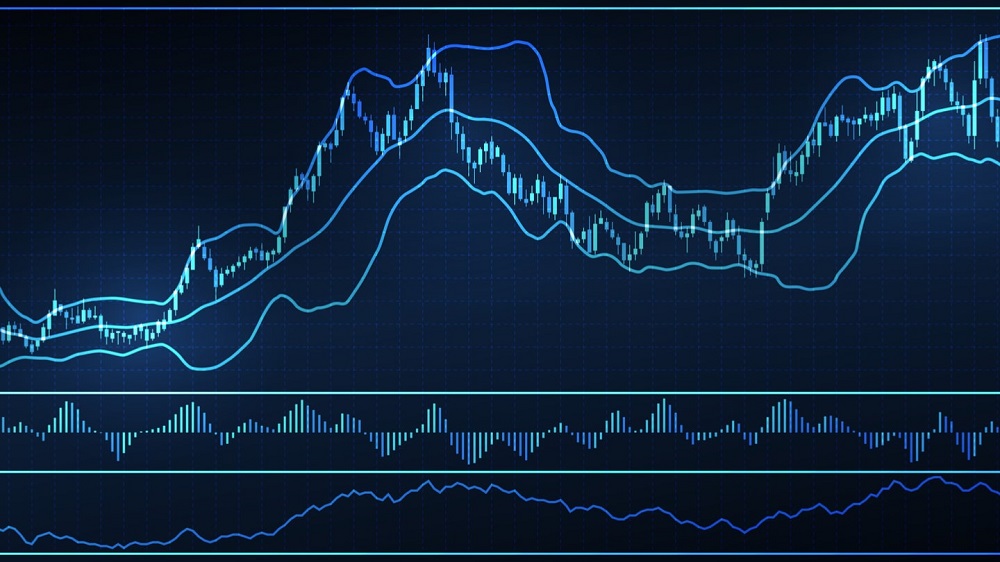
Forex Trading Strategies
Many different strategies can be used to trade forex.
Strategies for Beginners
As a beginner, consider using one of the following strategies:
Breakout
The breakout strategy identifies breaks as trading signals. Consolidation describes a market that is swinging between support and resistance bands.
A breakout describes a situation when the market moves outside of the limits of that consolidation, either to new highs or new lows. A breakout often takes place before a new trend begins.
Traders should bear in mind that a breakout does not always lead to a new trend, so setting a stop-loss order is sensible.
Simple Moving Average (SMA)
A moving average is a lagging indicator that is influenced by historical price data. They can help traders to confirm trends and make decisions accordingly.
Donchian Channels
Traders can modify the parameters of the Donchian Channels to suit their needs. Invented by Richard Donchian, it involves establishing the highest high and lowest low during a user-defined timeframe.
Breaks in the Donchian Channel can be used to make trading decisions. If the market price is higher than the highest high during the specified timeframe, the trader should buy. If the market price is lower than the lowest low during the specified timeframe, the trader should sell.
Strategies for Experienced Traders
For experienced forex traders, possible strategies include:
Hedging
Hedging involves ‘hedging your bets’ as a form of risk management. It offers protection for open positions against possible negative movements in the market.
This technique is often employed in response to news and world events that may make the market more volatile.
Carry Trades
Carry Trades involves borrowing a financial instrument at a low interest rate, then investing what you have borrowed in a second financial instrument with a high interest rate.
Over time, traders hope to profit from the difference between the interest paid and interest received. This is known as the interest rate differential.
Scalping
Scalping involves skimming small individual profits from a large pool of trades.
Profit is acquired through buying and selling currencies within a short time frame. It requires intense concentration and a significant time commitment.
What to Consider
When choosing your strategy, consider the following:
What Is My Current Understanding of Trading? What Am I Good At?
Also, what affects my discipline, focus, patience and ability to follow through on actions?
Be aware of the potential hurdles you might face when forex trading, as well as your own behavioral tendencies. For example, you might be prone to trading impulsively or over-trading.
How Can I Improve My Knowledge of Trading and the Currency Exchange Markets?
Commit to continuous learning to optimize your performance and improve your expertise.
Keep a trading journal to help monitor your thoughts and feelings, as well as your progress and track record.
What Is My End Goal?
To work out how much capital you will need to meet your goals, you should:
- Set a reasonable expectation for the amount you wish to make from trading annually.
- Work out a reasonable expectation of return. An experienced trader could make between 15-25% each year, but if you are a beginner, then your return is likely to be much lower than this.
- Use the following equation: Desired income / return % = capital required.
For example, if your desired income is $2,000 per year and you expect a return of 5%, you will need an initial capital amount of $400.
How Will I Manage Risk?
Initially trading on a part-time basis alongside your other commitments is a sensible way to start.
This will help you to perfect your trading strategy, learn how to work in line with your plan and build up your confidence. You will also enjoy the benefit of extra income to complement your salary.
How Will I Adapt My Trading Strategy to Fluctuating Market Conditions?
The best way to learn how to adapt your trading strategy is to make use of a demo account.
Using a demo account will not offer the same adrenaline rush you would get from risking real money, but it will teach you the importance of closely monitoring market conditions. It can also help you to understand how exchange rates move.
That said, you should be aware that using a demo account for virtual trading removes the psychological element of risk-taking, which can be the deciding factor as to whether you are a successful trader or not.
Although using a demo account will not provide an accurate assessment of your trading abilities, it is the ideal way to practice. It can also be used to look back on historical statistics of your trading plan.
As you build up your currency trading skills, you will learn methods for reading and interpreting changes in market activity. This will allow you to check how your chosen trades are performing, comparing this to external factors such as world events and the global markets.
How to Choose a Forex Trading Broker
With so many options, it is vital to know what to look for in a forex trading broker.
When choosing a broker, you should look for the following:
- Tier 1 regulated – When you trade, you will be entrusting your broker with money and your personal details. Choosing a regulated broker will give you peace of mind that your funds and information are protected.
- Fast execution speed – The execution speed is the time that elapses between sending your order to the broker and the order being fulfilled. Choosing a broker with fast execution speeds is especially important if you intend to trade using a scalping strategy or automated trading platform.
- Technical analysis tools – As a forex trader, you will need to learn how to analyze historical trading data. Using a broker with good technical analysis resources means you will be able to easily identify trends and patterns to assist your making decisions on your trades.
- Customer support – Your forex broker will support you through every step of your trading career. It is important to choose a broker that is easy to contact, efficient and able to offer high-quality guidance.
- Lower fees and commission – Some brokers work on a commission basis, but the majority make money through spreads. There may also be a minimum deposit, charges for holding an open position overnight, withdrawal charges and interest rates to consider. Always check the small print of your chosen broker’s service agreement to avoid unexpected fees.
- Educational resources – The top forex brokers want their traders to turn a good profit. To support you, many offer articles, webinars and tutorials that are included in the cost of your account.
Final Thoughts
The qualities you are looking for in a broker will depend on the market you want to bet on, your trading experience and the amount you want to place.
If you are new to the world of spread betting, most of the providers listed above provide the ability to create demo accounts or replicate existing bets so you can get a feel for it. You might also want to go with a broker who specializes in dealing with new traders and is more equipped with educational and training facilities.
To summarize, consider the following factors when selecting a broker:
- Are they regulated in all the countries where they are based?
- Do they offer good value and showcase their fees and financials clearly?
- Do they provide access to high-quality, optimized trading platforms that offer a user-friendly experience?
Many brokers offer a vast amount of training courses and educational assets. Do your homework if you are a spread betting beginner.
Myanfx-edu does not provide tax, investment or financial services and advice. The information is being presented without consideration of the investment objectives, risk tolerance, or financial circumstances of any specific investor and might not be suitable for all investors.
Financial Trading is not suitable for all investors & involved Risky. If you through with this link and trade we may earn some commission.

Types of Forex Market
There are three different ways to trade forex:
Spot Market
This is the most popular way to trade forex. Currencies are bought and sold according to their trading price.
The trading price takes supply and demand into account, but it is also based on other factors like economic performance, interest rates and ongoing political issues. Although the spot market deals with transactions ‘on the spot’, these usually take two days to settle.
Forwards and Futures Market
Forwards contracts are private agreements made between two parties. They are made in advance. Currency is purchased on a predetermined date for a pre-agreed price.
Futures contracts are standardized agreements made between two parties. One party takes delivery of a currency on a pre-agreed future date in exchange for a predetermined sum.
Forwards and futures are both binding. They are usually settled for cash at the relevant exchange when they expire – however, they can be bought and sold prior to their expiry.
Forwards and futures trading can provide protection against risk. Large international firms often use these trading types to hedge against future exchange rate changes, but they are used by speculative traders too.
In the United States, the currency futures market is regulated by the National Futures Association. Futures contracts must include certain information, such as the number of units to be traded, pre-agreed delivery and settlement data and non-customizable minimum price increments.
Pros and Cons of Forex Trading
Learning to trade forex can bring many benefits. Being a global market with high liquidity, there are opportunities to make a profit. Traders buy and sell currency pairs throughout the day and night, with more than $4 trillion being exchanged on the average day.
If you want to trade as a hobby, forex currency trading is a good choice. You do not need a significant initial investment, and the market is reasonably easy to enter. Demo accounts enable you to practice trading forex without risk.
There are few additional fees to consider when compared to other types of trading. Transaction fees tend to be low, but your broker might charge a commission fee, which may be variable according to your trading activity.
Technology makes trading forex easy, with a range of different platforms available. Mobile apps, algorithms and connectivity means you can make trades in real time, wherever you are.
As there is no centralized exchange system for forex trading, each country is responsible for regulation. Using a regulated broker is vital – this will give you reassurance that it is transparent, fair and closely monitored.
Like any form of trading, forex trading involves risk. It should not be viewed as a get-rich-quick scheme. To be successful, you must build up your knowledge and commit to understanding the market and global economies.
Forex Trading Risks
The main risks of forex trading are:
- Leverage – This can affect your trades positively or negatively. The higher the leverage, the bigger your profits or losses.
- Interest rate changes – When an interest rate goes up in a country, their currency may become stronger. Investors may choose to invest more money in the country’s markets, as this could bring them higher returns. In contrast, when an interest rate falls, the currency may become weaker, meaning more investors choose to sell their investments.
- Transaction risk – This risk is linked to time differences between different countries. It can happen at any time between the start and end of a contract. During the 24-hour settling period, exchange rates might change. This type of risk is more likely when there is a significant time difference between entering and settling a contract.
Forex Automated Trading
Many automated forex trading systems are available to purchase. They are popular because they can react to information much faster than a human could. As the forex market is open 24 hours per day, they are also able to keep on top of your trades when you are unavailable.
Forex robots use computer code and algorithms to carry out trading activities. Forex robots are legal, but traders should be cautious when considering using one. The marketplace is not regulated, so there are many scams to be wary of.
Forex robots can be fully or semi-automated. Some are free, whereas others are very expensive. Choosing a robot to complement your trading strategy may be helpful, but trading successfully will require human input and effort too.
Robots allow traders to test out potential trading strategies against historical data. Carrying this activity out manually can be very time-consuming and complicated. They are easily available, but it is important to do your research before choosing one.
When choosing an algorithmic trading strategy, consider your own trading style. A news-based trading system considers world and economic activity, such as natural disasters, elections, war and political unrest. It involves holding positions for short timeframes and uses algorithms that react to news stories and generate trade signals.
A trend-based strategy follows market activity and trends. It considers how a price has moved in the past. If an upward trend is identified, the automated system may recommend a long position where the trader buys in anticipation of a future price rise.
On the other hand, when a downward trend is identified, the system will recommend the trader go short, which means selling the security with a view to buy it again for a lower price.
If you want to use a scalping strategy, an automated system will be able to work considerably faster than you could, processing thousands of trades in under a second.
How to Become a Forex Trader
Learning to trade forex is time-consuming and complicated. You will need to:
Invest In the Necessary Equipment
You will need a high-speed computer with a stable internet connection. Some traders choose to download their chosen trading platform to their tablet or smartphone, but this is not essential.
Learn Trading Terminology
Taking a forex trading course is a good starting point for learning the basics, including terminology. As you begin to learn FX trading, you will encounter several common terms, including:
Pips
This describes the base unit in the price of the currency pair – or 0.0001 of the quoted price for currency pairs that do not include Japanese yen (JPY). When the bid price for the GBP/USD pair moves from 1.17778 to 1.17788, there is a difference of one pip.
Spread
The difference between the ask price and the bid price is referred to as the ‘spread’. When you look at popular currency pairs, the spread is usually very low. For currency pairs that do not trade so often, the spread is usually higher.
For a forex trade to be profitable, the value of the currency pair will need to be higher than the spread.
Margin
This term refers to the money remaining in the trading account at the point of opening a trade.
Since retail forex traders do not usually have the required margin to trade at volumes needed for significant profits, forex brokers often give clients access to ‘leverage’.
Leverage
This term refers to the capital granted by a forex broker to raise the volume of trades that their customers are able to make.
For example, the face value of a lot is equivalent to 100,000 units of the base currency. For GBP/USD, this would be £100,000.
The trader uses a 1:10 leverage rate and has £1,000 in their trading account. Leverage allows them to trade a currency pair with a £10,000 position size.
Should the trade be successful, the leverage will increase the trader’s profits by a factor of 10. But they will need to bear in mind that leverage will multiply any losses in the same way.
Whether you are a novice or expert trader, leverage should be used cautiously.
Should your account balance drop below zero, you can ask the broker to invoke their negative balance policy. This protection is available from European Securities and Markets Authority (ESMA) regulated brokers and means your balance cannot drop below zero.
Bearish Markets
When the prices of stocks are falling, the market is referred to as bearish. When a stock price drops rapidly, this is considered to be very bearish.
Bullish Markets
A bullish market is the opposite of a bearish market. When the prices of stocks are rising, the market is referred to as a bull market. When a stock price increases quickly, this is considered to be very bullish.
Trading Platform With Demo Account
A trading platform enables you to trade independently. It also provides access to useful trading resources.
There are many different trading platforms to choose from, so it is important to research what is available and choose the one best suited to your requirements.
Forex Trading Strategies
Many different strategies can be used to trade forex.
Strategies for Beginners
As a beginner, consider using one of the following strategies:
Breakout
The breakout strategy identifies breaks as trading signals. Consolidation describes a market that is swinging between support and resistance bands.
A breakout describes a situation when the market moves outside of the limits of that consolidation, either to new highs or new lows. A breakout often takes place before a new trend begins.
Traders should bear in mind that a breakout does not always lead to a new trend, so setting a stop-loss order is sensible.
Simple Moving Average (SMA)
A moving average is a lagging indicator that is influenced by historical price data. They can help traders to confirm trends and make decisions accordingly.
Donchian Channels
Traders can modify the parameters of the Donchian Channels to suit their needs. Invented by Richard Donchian, it involves establishing the highest high and lowest low during a user-defined timeframe.
Breaks in the Donchian Channel can be used to make trading decisions. If the market price is higher than the highest high during the specified timeframe, the trader should buy. If the market price is lower than the lowest low during the specified timeframe, the trader should sell.
Strategies for Experienced Traders
For experienced forex traders, possible strategies include:
Hedging
Hedging involves ‘hedging your bets’ as a form of risk management. It offers protection for open positions against possible negative movements in the market.
This technique is often employed in response to news and world events that may make the market more volatile.
Carry Trades
Carry Trades involves borrowing a financial instrument at a low interest rate, then investing what you have borrowed in a second financial instrument with a high interest rate.
Over time, traders hope to profit from the difference between the interest paid and interest received. This is known as the interest rate differential.
Scalping
Scalping involves skimming small individual profits from a large pool of trades.
Profit is acquired through buying and selling currencies within a short time frame. It requires intense concentration and a significant time commitment.
What to Consider
When choosing your strategy, consider the following:
What Is My Current Understanding of Trading? What Am I Good At?
Also, what affects my discipline, focus, patience and ability to follow through on actions?
Be aware of the potential hurdles you might face when forex trading, as well as your own behavioral tendencies. For example, you might be prone to trading impulsively or over-trading.
How Can I Improve My Knowledge of Trading and the Currency Exchange Markets?
Commit to continuous learning to optimize your performance and improve your expertise.
Keep a trading journal to help monitor your thoughts and feelings, as well as your progress and track record.
What Is My End Goal?
To work out how much capital you will need to meet your goals, you should:
- Set a reasonable expectation for the amount you wish to make from trading annually.
- Work out a reasonable expectation of return. An experienced trader could make between 15-25% each year, but if you are a beginner, then your return is likely to be much lower than this.
- Use the following equation: Desired income / return % = capital required.
For example, if your desired income is $2,000 per year and you expect a return of 5%, you will need an initial capital amount of $400.
How Will I Manage Risk?
Initially trading on a part-time basis alongside your other commitments is a sensible way to start.
This will help you to perfect your trading strategy, learn how to work in line with your plan and build up your confidence. You will also enjoy the benefit of extra income to complement your salary.
How Will I Adapt My Trading Strategy to Fluctuating Market Conditions?
The best way to learn how to adapt your trading strategy is to make use of a demo account.
Using a demo account will not offer the same adrenaline rush you would get from risking real money, but it will teach you the importance of closely monitoring market conditions. It can also help you to understand how exchange rates move.
That said, you should be aware that using a demo account for virtual trading removes the psychological element of risk-taking, which can be the deciding factor as to whether you are a successful trader or not.
Although using a demo account will not provide an accurate assessment of your trading abilities, it is the ideal way to practice. It can also be used to look back on historical statistics of your trading plan.
As you build up your currency trading skills, you will learn methods for reading and interpreting changes in market activity. This will allow you to check how your chosen trades are performing, comparing this to external factors such as world events and the global markets.
How to Choose a Forex Trading Broker
With so many options, it is vital to know what to look for in a forex trading broker.
When choosing a broker, you should look for the following:
- Tier 1 regulated – When you trade, you will be entrusting your broker with money and your personal details. Choosing a regulated broker will give you peace of mind that your funds and information are protected.
- Fast execution speed – The execution speed is the time that elapses between sending your order to the broker and the order being fulfilled. Choosing a broker with fast execution speeds is especially important if you intend to trade using a scalping strategy or automated trading platform.
- Technical analysis tools – As a forex trader, you will need to learn how to analyze historical trading data. Using a broker with good technical analysis resources means you will be able to easily identify trends and patterns to assist your making decisions on your trades.
- Customer support – Your forex broker will support you through every step of your trading career. It is important to choose a broker that is easy to contact, efficient and able to offer high-quality guidance.
- Lower fees and commission – Some brokers work on a commission basis, but the majority make money through spreads. There may also be a minimum deposit, charges for holding an open position overnight, withdrawal charges and interest rates to consider. Always check the small print of your chosen broker’s service agreement to avoid unexpected fees.
- Educational resources – The top forex brokers want their traders to turn a good profit. To support you, many offer articles, webinars and tutorials that are included in the cost of your account.
Final Thoughts
Becoming a successful forex trader will not happen overnight. It will require commitment, dedication and planning.
You should always start with a demo account; this will help you to learn your way around the markets and build a trading strategy. Sampling several different demo accounts will help you to choose the trading platform that works best for you.
When you are ready to start trading real money, remember to start small and work your way up. You should also use stop losses to minimize risk.
Recording your trades and thoughts in a trading journal is a useful way to keep track of your learning and performance.
Myanfx-edu does not provide tax, investment or financial services and advice. The information is being presented without consideration of the investment objectives, risk tolerance, or financial circumstances of any specific investor and might not be suitable for all investors.
Financial Trading is not suitable for all investors & involved Risky. If you through with this link and trade we may earn some commission.

Best for: Experienced traiders With over 2,000 stocks, Plus500 is an easy-to-use platform with lots of educational material,

Best for: Experienced traders IG is regulated by the FCA and BaFIN in Germany. It is
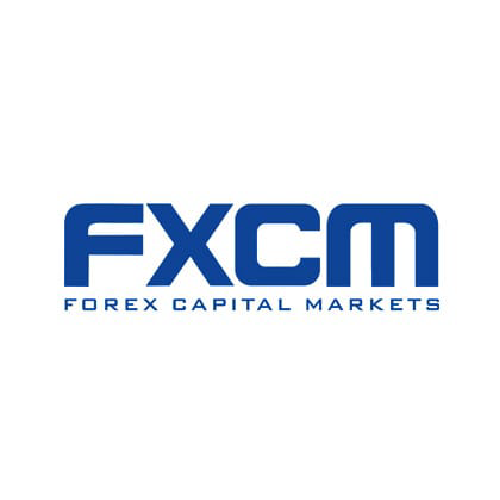
Best for: Forex trading Established in 1999 and owned by Jefferies Financial Group, FXCM is both

Vantage FX was founded in 2008 to be a transparent forex broker and has grown

Capital.com is another online CFD and stock broker designed specifically for experienced investors. The site
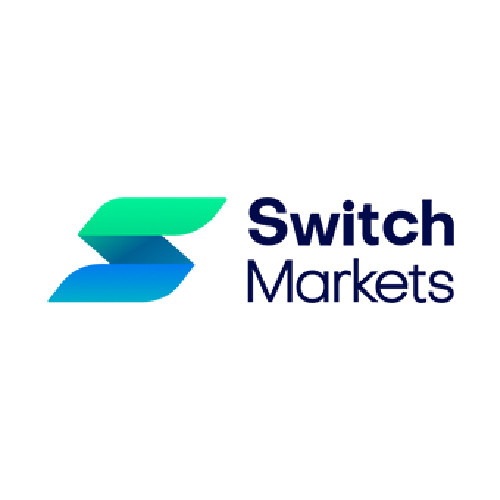
With Switch Markets you can trade Forex, CFDs, Crypto, Commodities and more on either a live

Best for: Zero commission and all-round broker eToro features include: Access to over 800 stocks No commission

Best for: Those who value easy account opening and free deposits and withdrawals IC Markets is

Best for: Spread betting City Index is an award-winning broker that offers low forex and stock

Best for: Tight spreads and low fees Pepperstone requires no minimum deposit and offers low trading fees.
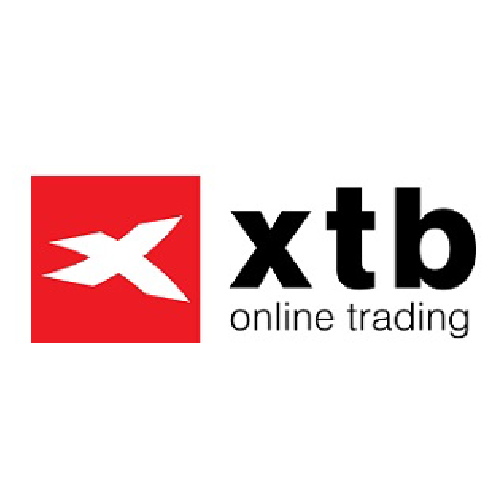
Best for: International trading XTB is a trusted all-around broker, established in 2002. It is regulated

HYCM was established in 1972 as a gold and silver trader in Hong Kong, and
Want to Trade Online?
Easy Trading Platform
Copy Experienced Traders
Trade from Your Pocket
Trade with Liteforex
- Best Mobile App
- Free Trading Courses
- Low Fees
- Fast Execution
- 24/7 Customer Support
CFD Trading on financial markets carries risks. Before deciding to trade, you need to ensure that you understand the risks involved.





